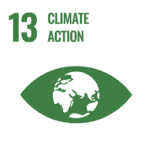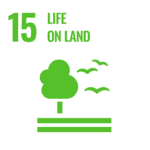Our footprint
CO2 emissions
Climate change is a global challenge. Reducing our environmental impact is therefore an indispensable part of our strategy. At Corendon we choose to take matters into our own hands and to take adequate action. We focus on CO2 reduction and compensation throughout our entire chain. We have set up a CO2 reduction program for the CO2 we emit, whereby customers can compensate for the CO2 emissions of their own stay by buying a tree. Our own Corendon forest already has 415,000 planted young trees, our goal is to go to 1 million trees. Planting trees makes an impact. Impact for the next generation. One tree takes up around 20 kg CO2 in a year, which is equivalent to a 90-kilometer drive. This means that we have already absorbed more than 8,300,000 kilos of CO2. By planting trees, we help to compensate for CO2 emissions and thus keep the earth green and to restore plant and animal species to their habitat.
Efficient energy consumption
All our Dutch hotels have a Green Key Gold quality mark and use 50% less energy than an average comparable hotel. We apply energy-saving measures in our offices and hotels, such as LED lighting, a heat-cold pump that regulates hot and cold air equal to the outside temperatures. Here too we compensate our CO2 with a Gold Standard climate project.
Recycling
We separate our waste at both our offices and hotels. We work together with various parties to recycle as much of our separated waste as possible. We have separate waste bins for plastic, paper and waste in our hotels.
Water consumption
We save water where we can. All our toilets have a dual flush system and we inform our hotel partners and guests about how they can save water locally and at the holiday destination.
Solar panels and water treatment in Curaçao
Together with Aqualectra Curaçao, Corendon shares ideas and insights to develop innovative solutions to create a sustainable hotel concept. For the Corendon Mangrove Beach Resort, Corendon uses solar panels to generate 2.3 megawatts of electricity and is therefore completely self-sufficient. In addition, water is pumped from the sea and filtered for use in showers, sinks, toilets and swimming pools. A quarter of the waste water from this is used for the gardens. The hotel supplies the remaining three quarters to the farmers in the neighborhood in order to contribute to a more sustainable environment. Curaçao has been on the World Heritage List of UNESCO for more than twenty years. Part of this is the surrounding waters and coastal areas of the island, rich in mangrove forests, seagrass beds and coral reefs. Mangrove forests are under serious threat worldwide, but are of enormous importance for biodiversity, water purification, carbon capture and coastal protection. Since the resort is located in a special nature area with mangrove forests, Corendon will clean the mangroves on its own grounds, as well as adjacent parts. The land is cleaned up in consultation with nature conservation organizations on the island, the area is manually stripped of mountains of litter and is completely tidied up.
Reduce plastic footprint
Disposable without plastic
We are reducing our plastic consumption. Why? Because plastic does not perish and has major consequences for marine life. That is why we minimize the use of disposable packaging in our hotels. The disposable packaging that we do have is less harmful to the environment. They are made from polylactic acid (PLA) or from residual streams from food production, such as cane sugar or corn. They are biodegradable so they compost in nature.
Satino Black toilet accessories
We are happy to give waste a new destination. The matte black toilet accessories on our public toilets in the Corendon City hotel and Corendon Village hotel are made from 100% recycled plastic. Are we ready for new products? Satino Black takes the old toilet accessories with it and new ones are made. In addition, they are produced CO2 neutral. What does this mean? Sustainable energy and green gas are used in production. So no CO2 is released, so they are CO2 neutral.


